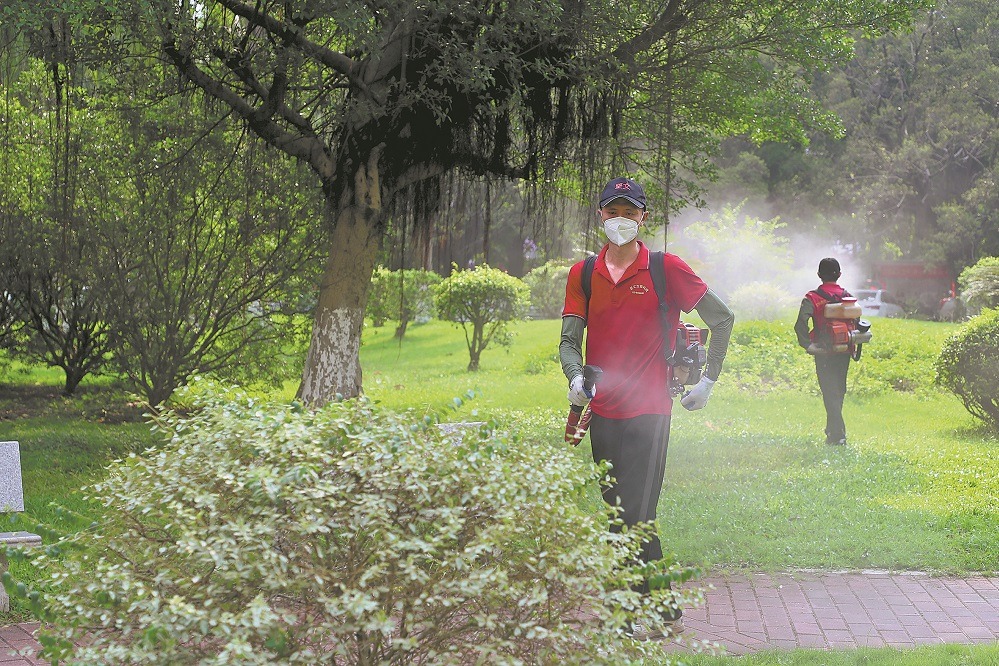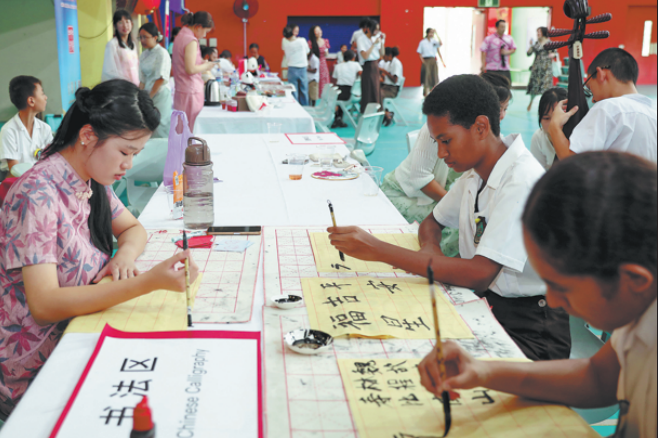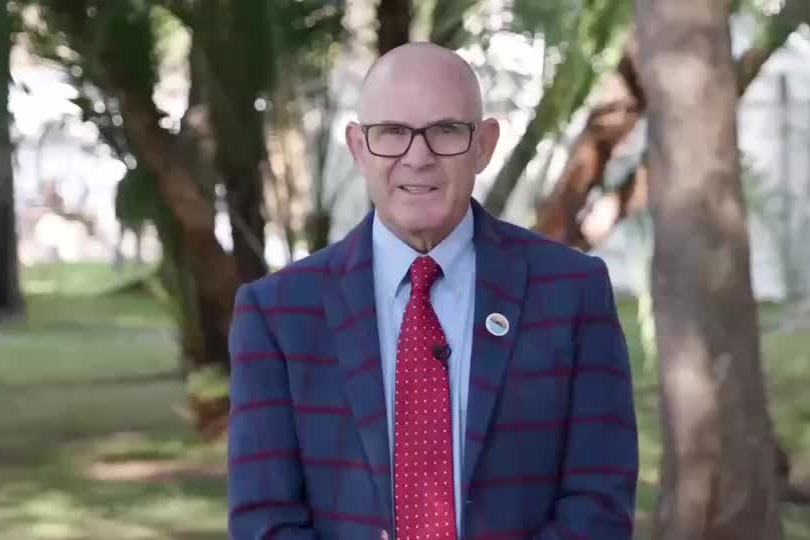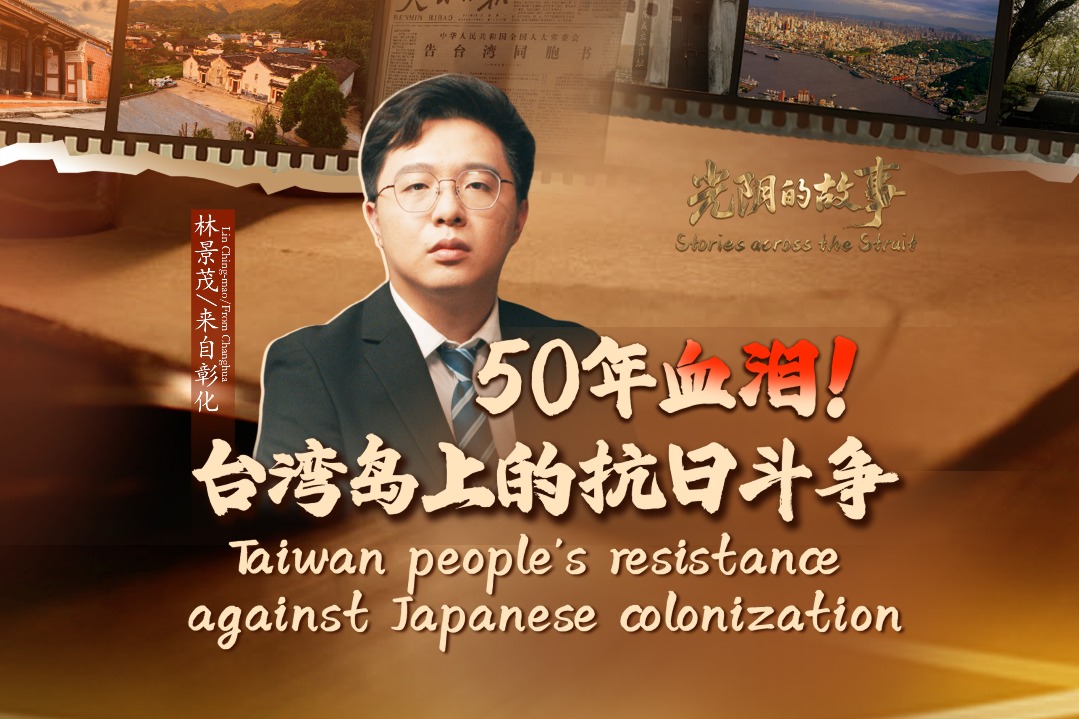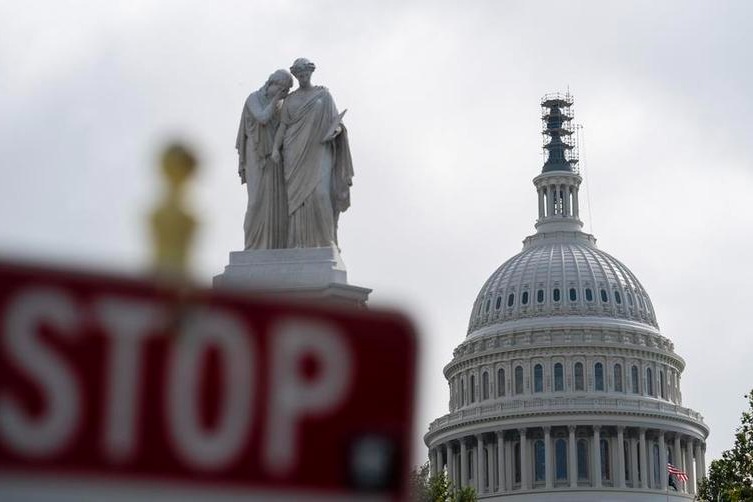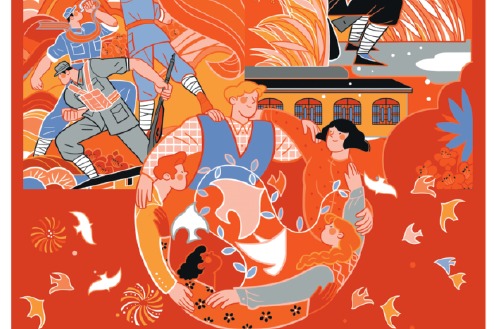Japan's selective amnesia threat to peace and historical truth


History is often written by the victors, but in Japan a selective memory downplays the nation's wartime guilt. This delusion is captured in the recent Chinese film Dead to Rights. Set during the Nanjing Massacre, the movie follows some civilians who seek refuge in a photo studio and risk their lives to expose photographic evidence of the atrocities committed by the Imperial Japanese Army.
Instead of prompting a thoughtful reflection, Japanese outlets such as TBS Television linked the movie's popularity to growing anti-Japanese sentiment in China, while the Yomiuri Shimbun dismissed it as "overhyped political propaganda". The Sankei Shimbun went further by publishing a column with the headline, "The 'Nanjing Massacre', as claimed by China, is a lie". Even former Japanese national soccer player Keisuke Honda initially dismissed the massacre as a "Chinese-made lie".
Such a reaction is unfortunately natural from a society that has for decades been minimizing its role as a wartime aggressor. In the public discourse, any discussion of Japanese atrocities is met with a defensive counter-narrative focused on the nation's own victimhood. The horrific Nanjing Massacre, where Japanese troops slaughtered over 300,000 Chinese civilians and unarmed soldiers in just six weeks, is met with the bombing of Hiroshima. The forced sexual slavery of comfort women, who were women and girls from Japan's occupied territories — including Korea, China, the Philippines, Indonesia, and others — and the barbaric human experiments conducted by Unit 731 are dismissed or minimized, replaced by a focus on the Japanese suffering at the end of the war. The staggering scale of the Japanese atrocities and the 35 million Chinese military and civilian casualties as well as the more than $600 billion in economic losses for China during the 14-year war against Japanese aggression are conveniently ignored, creating a false moral equivalence that attempts to absolve Japan of its wartime guilt.
It is a deep-seated societal phenomenon, reinforced by an education system in which politicians and nationalist historians are pressuring for the omission or downplaying of key wartime atrocities. As Dead to Rights' director Shen Ao said, "The smoke may have cleared from the real battlefield, but an unseen war — of public opinion, perception, and culture — continues to rage to this day."
Thankfully, there is a glimmer of hope. After receiving an outpouring of criticism and recommendations from concerned citizens, Honda, the soccer player, took time out to read and research the historical sources. His subsequent public apology and admission that he was wrong provided a powerful example of how an individual can break away from a false narrative. But many in Japan continue to echo it.
Consider the themes of recent films showing in Japan. The Women of Kurokawa tells the story of Japanese colonialists who suffered after the war. The Army on the Tree depicts soldiers unaware of the war's end as victims. Nagasaki, In the Shadow of the Flash focuses on the tragic suffering of Japanese nurses after the atomic bombing. A Sky Full of Stars recounts the death of Japanese children on a civilian ship sunk by a US submarine. And Yukikaze is the heroic story of a Japanese warship that survived the war. These films collectively reinforce a single narrative: that of Japan as a victim of the war; a nation that suffered immensely, whose people were caught in events beyond their control. This is a dangerous path.
Compared to Germany, which undertook a thorough and institutionalized process of apology and atonement for its Nazi past, Japan is still at square one. However, Germany's constrained position on the humanitarian crisis in Gaza shows that moving beyond historical mistakes isn't just about apology — it's about using that understanding to stand on the right side of history.
The world is at a new crossroads, when it is more important than ever for nations to stand on the right side of history, and strive tirelessly for lasting peace. Otherwise, we face a grave risk of sliding back into a world governed by the "law of the jungle", where might makes right.
















